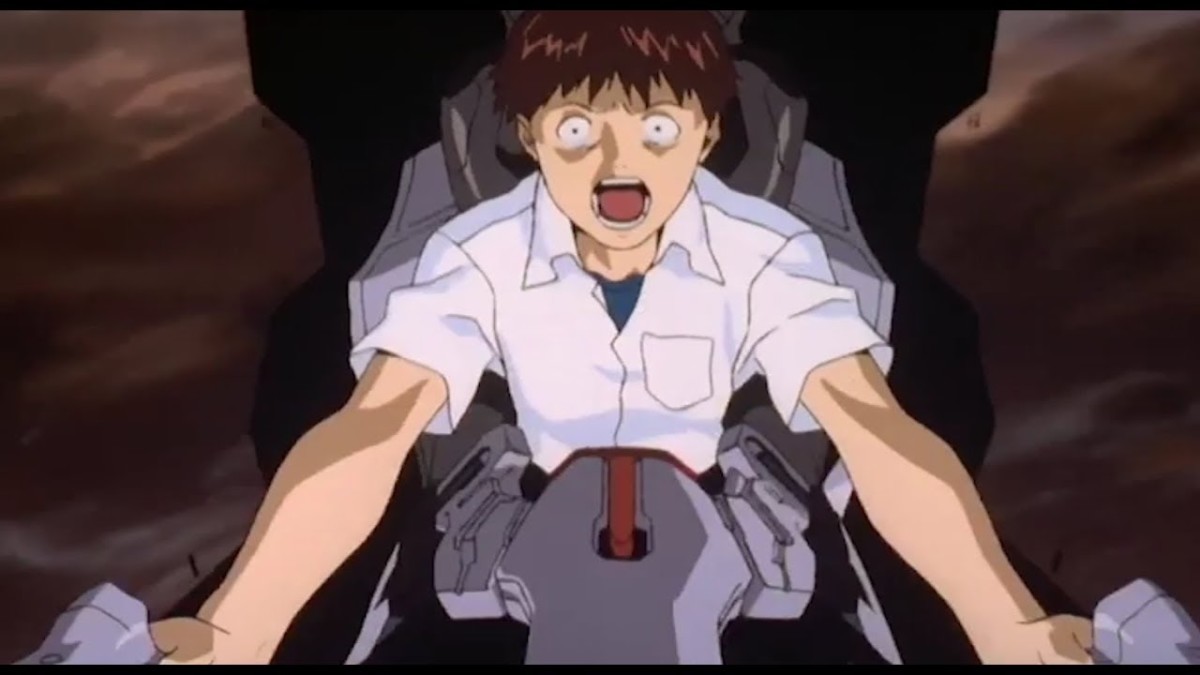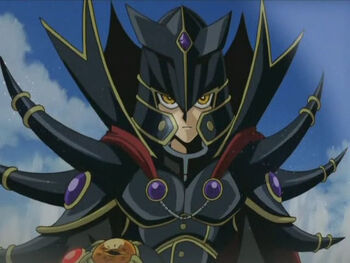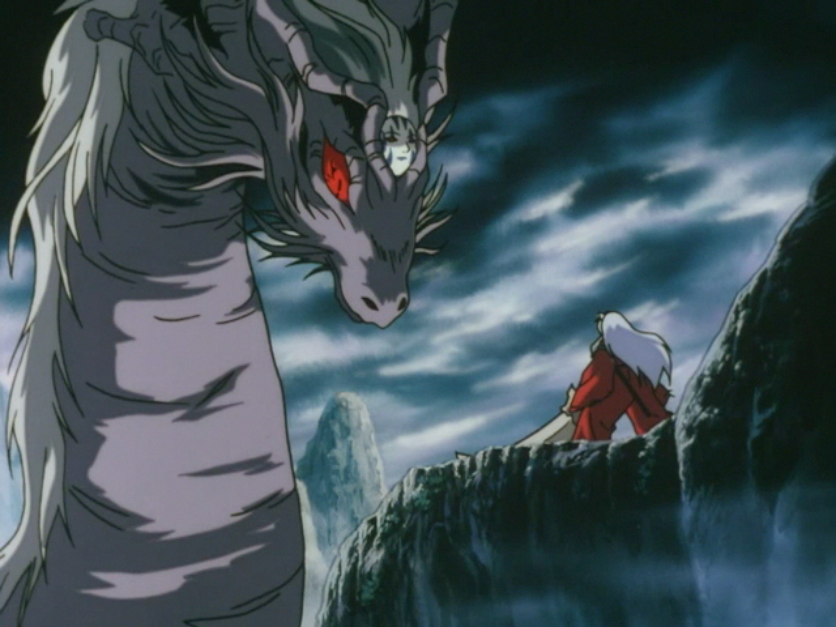The last time I made a music-related post was on March 16, 2019, when I made a list of my favorite anime songs that weren’t an opening or an ending theme, which you can view here. Bask in the glory of its mundane style and its chock wall of text that would give supplementary materials on Roman Catholic canon law a run for their money. But anyways, I’m not here to make a post about a post that I wrote almost 10 months ago. It has come to my attention that there’s this little game of tag that’s been going around some anime blogs; one of them is the Put A Tune To It Challenge which one user named Dewbond started around a few months back. Having been recently tagged by iniksbane to do this challenge, I figured it would make a good, lengthy post to write about – so shoutout to him for giving me this inspiration!
RULES
Before I proceed, let’s take a look at the rules I’m expected to follow for this post:
- Choose any number of western songs (any genre) that you think best sums up an anime or manga of any type or genre.
- If you want to pick more than 1 from each section that’s fine. Or if you can’t think of one for a specific category that’s fine also.
- Explain why you think your choices could work. Is it the lyrics? The tune and the beat? Or just the music video?
- Link back to the original post so I can read people’s suggestions, I’d love to read everyone’s ideas.
- Include Put a Tune to It in your tags so everyone including myself can find them all easily.
- Nominate around 1-5 bloggers.
Alright, sounds pretty simple enough. What I’m going to be doing is provide the song, alongside which anime series I associate it with, and explain the context of the song / how it fits with the anime’s atmosphere or story. So, without further ado, time for me to kick off my own Put A Tune To It Challenge.
SONG #1: Missa Papae Marcelli by Giovanni Palestrina (Vatican Kiseki Chousakan)
First off is the Missa Papae Marcelli by Giovanni Palestrina, a 16th-century Italian composer who produced musical pieces for papal choirs. One of them is the aforementioned piece, a polyphonic Mass setting which has been hailed as one of the most awe-inspiring examples of Renaissance music.
The anime that I feel suits this piece of music are two: namely, Vatican Kiseki Chousakan, which depicts the exploits of two Roman Catholic priests as they attempt to debunk claims of miracles worldwide. I used this piece because of the inherently religious nature of the show. Many of the topics discussed in the series included the lives of Catholic martyrs, miracles, and placing one’s faith in God rather than relying on supernatural claims to validate one’s religious experience. And with the Missa Papae Marcelli‘s songs consisting of pleas for God’s mercy, acclamations of glory to Him, and a profession of faith, things which are central to the Catholic Faith, I figured I might as well list this piece alongside Vatican Kiseki Chousakan.

SONG #2: How To Save A Life by The Fray (Puella Magi Madoka Magica, Neon Genesis Evangelion)
Composed in 2006 by American-based rock band The Fray, the song’s lyrics are rife with links to people suffering from depression; in fact, the lyrics were inspired by lead singer Isaac Slade and his own personal experience with a teenager suffering from said problem. Immediately, I was reminded upon hearing these lyrics, about Homura Akemi from Puella Magi Madoka Magica and Shinji Ikari from Neon Genesis Evangelion. In particular, I focus on the following lyrics:
As he begins to raise his voice
You lower yours and grant him one last choice
Drive until you lose the road
Or break with the ones you’ve followed
He will do one of two things
He will admit to everything
Or he’ll say he’s just not the same
And you’ll begin to wonder why you came

Both characters visibly have emotional problems, at the root of which is the loss of a particular person who meant the world to them. For Homura, it was Madoka’s loss that triggered her never-ending cycle of depression, which grew even more and more as she looped through the timeline in a hopeless attempt to rescue her friend from certain death; the only solution which was, to accept her death as inevitable and submit to the consequences. Shinji’s case, which was the loss of his family (his mother died at an early age, and his father abandoned him) have reinforced a nihilistic worldview on him. Even when he meets friends and acquaintances along the way, ultimately he chooses to push them away, confining himself to his own self-pity and agony; nobody can knock some sense into him; it takes the destruction of the world in End of Evangelion to knock him back to his sense and realize his own self-worth. These lyrics from The Fray really hammered home the internal turmoil that both characters faced, and the difficulties that come about when others try to reach out to them.

SONG #3: Lazy Song by Bruno Mars (Himouto: Umaru-Chan)
When I attended a Vatican II Sect high school (this was years before I discovered the traditional Catholic faith), one of the most overplayed songs was Bruno Mars’ Lazy Song – a song which, at its very core, is about wanting to stay at home, do nothing, kick back and relax. In other words, being lazy (if it wasn’t apparent from the title). There’s no doubt that, when I listened to this song again for the first time in years, I was reminded of everyone’s favorite chibi, multiple personality disorder girl, Umaru Doma from the show Himouto! Umaru-chan, whose favorite activity outside of school is frolicking arond her small apartment, wearing a hamster hoodie while playing video games, watching a movie, or annoying her older brother Taihei and guilt-tripping him to getting whatever she wants; a magazine, food, or some new video games. And somehow she still gets an A+ on everything at school.
I mean, this theme literally needs no explanation. You could replace the opening theme of the show with this song, and it wouldn’t make a difference. In fact, just look at the first verse of Bruno Mars’ song, and tell me this doesn’t match with Umaru’s personality:
Uh I’m gonna kick my feet up and stare at the fan
Turn the TV on
Throw my hand in my pants
Nobody’s gon’ tell me I cant, noI’ll be loungin’ on the couch just chillin’ in my snuggie
Flip to MTV so they can teach me how to Dougie
‘Cause in my castle I’m the freakin’ man

SONG #4: Boulevard of Broken Dreams by Green Day (Yu-Gi-Oh GX)
In the third arc of Yu-Gi-Oh: GX, Judai Yuki reaches the lowest point of his dueling career; having ventured into the Dimension World with his friends, he watches as his friends are “killed” off during a duel with Brron, the self-styled “Mad King” of the dimension (episode 136). This begins effectively his descent into darkness, and his eventual transformation into the Supreme King – which also made him the de facto villain of the third arc. What better way to couple this theme with Green Day’s Boulevard of Broken Dreams – the lyrics of which speak about loneliness?
I walk a lonely road
The only one that I have ever known
Don’t know where it goes
But it’s home to me, and I walk alone
I walk this empty street
On the Boulevard of Broken Dreams
Where the city sleeps
And I’m the only one, and I walk alone
Green Day’s song effectively evokes the feeling that Judai experienced following his duel with Brron – left all alone in this world, and with his remaining friend Shou abandoning him and declaring his hatred for him, he truly becomes isolated from everyone else. His increasing torment and anger at the world around him pushes him to the brink, and drives him crazy – making him into the Supreme King: a cold, ruthless ruler, shut from the world by the darkness of his throne, who wishes to befriend no one, and only has one ambition: to destroy everyone and everything in his way no matter their intentions. As soon as I thought about those words, I couldn’t help but be reminded of these lyrics:

My shadow’s the only one that walks beside me
My shallow heart’s the only thing that’s beating
Sometimes I wish someone out there will find me
‘Til then I walk alone
SONG #5: Through The Fire And The Flames by Dragonforce (shows of the adventure / shounen genre)
Through The Fire And The Flames is a song about warriors riding into battle, fighting against an unnamed evil force – which is kind of what goes on in most adventure-related or shounen series from what I’ve seen. The fast-paced tune of the song, the emotionally-evoking lyrics and its powerful delivery just make it so fitting as a backdrop for an anime battle scene. Whenever I hear this song, I get reminded of things, like:
- Kirito and Asuna fighting against Gleam Eyes in Sword Art Online
- Inuyasha and company going up against Naraku’s army of demons
- The Digidestined’s final battle against Venom Myotismon in Odaiba (Digimon Adventure)
- Any battle from Boku No Hero Academia or the Fate series

And with all due seriousness, why wouldn’t those scenes cross paths well with this song? Especially with lyrics like the following:
When the darkness has fallen down
And the times are tough alright
The sound of evil laughter falls
Around the world tonightFighting hard, fighting on for the steel
Through the wastelands evermore
The scattered souls will feel the hell
Bodies wasted on the shores

SONG #6: High School Never Ends by Bowling For Soup (slice-of-life genre)
To close this post off, we have Bowling For Soup’s 2006 single about life in high school, and after. To me, this song is absolutely perfect for any slice-of-life series, with its laid-back, down-to-earth and totally relatable lyrics. High School Never Ends is downright perfect to describe a series that is cast in a high school setting; Lucky Star, Nichijou and The Melancholy of Haruhi Suzumiya being some notable examples I can think of. When it comes down to everything, the theme behind the song evokes a period in our lives when everything was a lot simpler, when all that mattered was going out with friends, worrying about the next installment of The Avengers that was coming out, and not to mention, sitting back and enjoying what today had to offer – without having to worry about bills, finding full-time employment, or tight deadlines. Which quite best describes the mood and atmosphere behind the slice-of-life genre.

CONCLUSION
That concludes my side of Put A Tune To It. Hope you guys enjoyed it, and do let me konw if I missed any song or genre that you would have liked me to talk about in the comments below. I’ll try my best to come up with something as usual 🙂
With that being said, here’s who I nominate to continue on this series: Elisabeth from littleanimeblog.com, Scott from Mechanical Anime Reviews, 9 Tailed Kitsune, Nesha, and ThatRandomEditor. I’d be interested to hear what you guys have in mind for this kind of post!

Those are some good picks. Good choices my friend.
LikeLiked by 1 person
Thank you my friend! Glad you liked them 😀
LikeLiked by 1 person
Those looked like some great choices. I was tagged earlier on my Iridium Eye blog and I had a blast coming up with the songs to certain series.
LikeLike
Glad you like the choices Osprey! It was an interesting challenge to embark on indeed.
Have you posted your version of the challenge? I would love to read it!
LikeLiked by 1 person
No problem. It certainly was fun.
I did and here’s a link to it: https://iridiumeye.wordpress.com/2020/01/17/put-a-tune-to-it-western-songs-for-anime/
LikeLiked by 1 person
Nice review! You made some very interesting and unique song choices here. 🙂
LikeLiked by 1 person
Thank you so much! Anything stand out to you the most about it?
LikeLiked by 1 person
Mostly the song choices! They’re all new to my ears but most especially the last song.
LikeLiked by 1 person
Sure thing. That’s cool how you liked the choices. The last one made way too much sense to me after watching The Lion’s Share which I also reviewed. I thought it was even more appropriate since I tied that song to that 60s anime series involving a lion cub prince who learns to lead the kingdom after his father the original king gets murdered. Shame how no one gave credit to Tezuka…
LikeLiked by 1 person
I read also that they tried to sue Disney citing plagiarization but backed out because of their lawyers. The development of The Lion King is a very interesting case with many twists and turns!
LikeLiked by 1 person
That’s right. One employee at Tezuka Productions said they didn’t have the money to take on Disney. It’s crazy because they would have a strong case if they went forward. Watching Kimba for the first time years ago was a mind-blowing experience to say the least. The controversy is way crazier like how Disney tried to ban the sequel Jungle Emperor Leo (1997) when it was going to debut in Canada at the Fantasia Film Festival which would’ve been the first time that movie played in North America. Roy E. Disney even called Sarabi “Kimba’s Mother” in the 1993 transcript where he was being interviewed. Also, (spoiler alert!) I put Claw in my Top 7 Underrated Anime Villains list and yes, one of the reasons is so obvious and people need to be prepared for it if they check out that post. Haha! X3
LikeLiked by 1 person
LOL! I gotta see Kimba The White Lion for myself now. Don’t tell me that Timon and Pumbaa come from that series too!
LikeLiked by 1 person
Hahaha! Thanks! I’ve actually reviewed 4 different parts of it like the original series, JEL ’97, the Hon-O-Ji short film, and the 2009 remake movie.
Funny you say that because Timon and Pumbaa are the only characters from the first movie who aren’t cloned from that anime.
LikeLiked by 1 person
Ok good, Timon and Pumbaa were my favorite characters from The Lion King so if they were plagiarized that would blow my mind…
LikeLiked by 1 person
No problem. I do have to warn you that JEL ’97 does parody them in a shocking way near the beginning. Speaking of them, Disney trademarked the phrase “Hakuna Matata” which is incredibly bogus as well as it being cultural appropriation/
LikeLiked by 1 person
Noted – thanks for the warning. I’ll be on the lookout for it 🙂
LikeLiked by 1 person
Sure thing. JEL makes some obvious Lion King potshots as a big take that to Disney. The opening scene straight up parodies the openings to Disney’s movies. You could audioswap the intro music with “The Circle of Life” or “He Lives In You” and it makes WAY too much sense (the scene involves adult Kimba/Leo’s cubs being born and the animals celebrating).
Sure thing and let me know when you watch it!
LikeLiked by 1 person